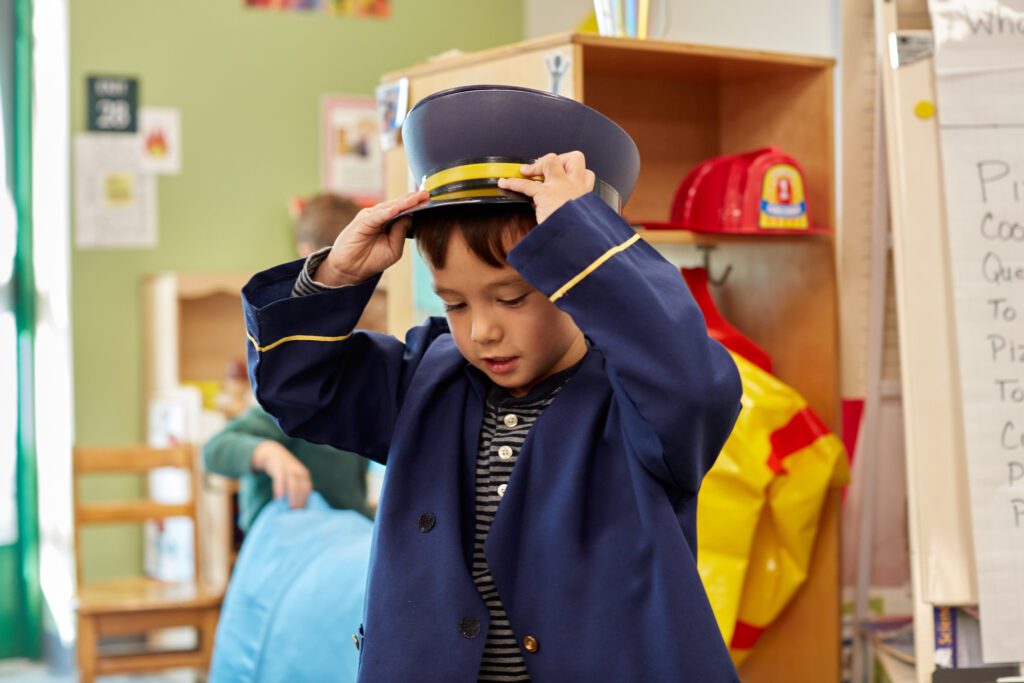Keeping It Real: Making Social Studies Learning Relevant to Young Children


For young children, effective learning about social studies topics such as history, geography, economics, and civics means has to be concrete and relevant to their lives.
Young children are best able to learn social studies concepts through direct, everyday exposure. A child who lives in the mountains of Utah and who has never seen the ocean will have a difficult time relating to social studies experiences about people who live at the beach. Social studies topics that are relevant to children’s lives and experiences provide the best learning opportunities. Even ordinary, everyday activities can present an opportunity to engage in social studies learning. For example, board games and tricycle paths are the precursors of learning about mapping skills. Concepts of time and history come to life through predictable daily routines and schedules. Dramatic play involving a restaurant or store presents an opportunity to explore economics concepts. And learning to cooperate and to resolve differences offers a real and tangible lesson in civics.
Plan experiences that are relevant to children’s experiences as part of your social studies work.
Here are a few questions to help you introduce social studies concepts in a meaningful way.
Knowledge about self:
- Who are the people in your family? What do they do?
- What songs does your family sing? How do you celebrate?
- What do we need to be safe and healthy?
- Where do you live? What is your community like?
People and how they live:
- How do you make and keep a friend?
- What kinds of jobs do people have in our community?
- How do people use money to get goods and services?
- What are some of the rules in your home, school, and community?
- How do people move from one place to another?
Changes related to familiar people or places:
- How do things and people change over time?
- How do we measure time?
- How do we talk about time? How do we talk about the past, present, and future (e.g., we use terms like this morning, after lunch, and tomorrow)?
Spaces and geography:
- What geographical features can we see in our community?
- How can we respect and care for our world?
- What can people do to help the environment?
- Where are you positioned in relation to other people and objects (e.g., near, far, next to, outside, behind)?
- What is a map? How can maps help us?
Using these questions will help you provide developmentally appropriate and relatable experiences for children to learn about the world around them.